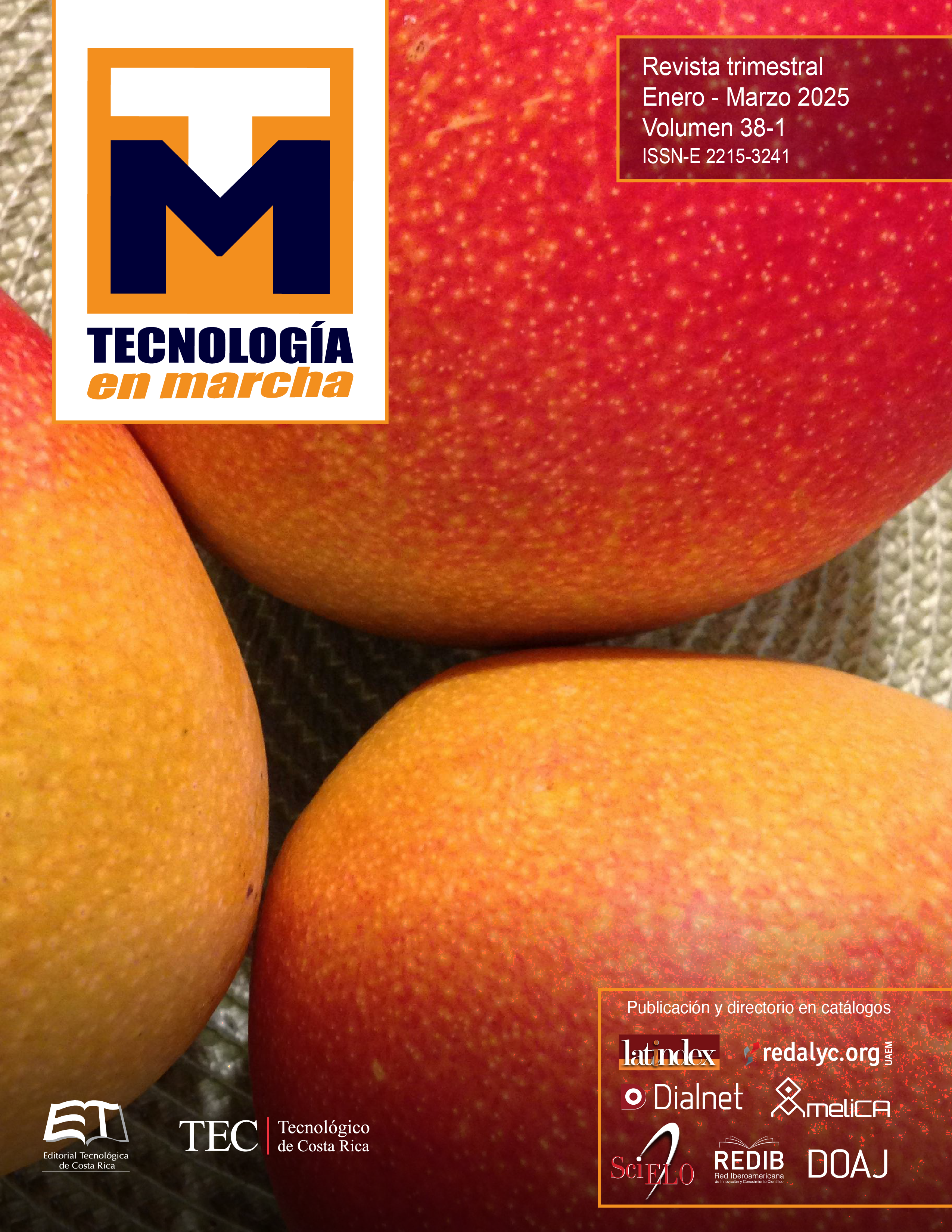Fundamentos y perspectivas del pensamiento computacional: un análisis integral para la investigación futura
Contenido principal del artículo
Resumen
Este artículo profundiza en la comprensión y aplicación del pensamiento computacional, una habilidad crucial en la era digital. Concebido inicialmente por Wing en 2006, este concepto no solo implica la codificación y programación de computadoras, sino que también se extiende a la resolución de problemas, el diseño de sistemas y la comprensión del comportamiento humano basado en los principios de la informática. Con el paso del tiempo, este enfoque ha evolucionado para incluir habilidades críticas como la abstracción, el análisis de datos, la modelización y la automatización de soluciones. Este estudio explora diversas interpretaciones del pensamiento computacional, desde ser una técnica para idear soluciones hasta una competencia intelectual para el análisis y solución de problemas reales. A través del análisis de literatura y evaluación de distintas herramientas y metodologías, la investigación destaca en particular la importancia de habilidades como la descomposición de problemas, abstracción, pensamiento algorítmico y evaluación en la educación y práctica profesional. A pesar de la ausencia de una definición unificada, el pensamiento computacional se reconoce como una habilidad multidimensional esencial, subrayando la necesidad de estrategias de enseñanza y evaluación efectivas. Además, se enfatiza la necesidad de establecer una definición universal de pensamiento computacional, seguida de la identificación clara de sus dimensiones y elementos constitutivos. El desarrollo de índices precisos y métricas objetivas es crucial para evaluar eficazmente el nivel de pensamiento computacional, lo que sentará las bases para una investigación rigurosa y metódica en este campo.
Detalles del artículo

Esta obra está bajo una licencia internacional Creative Commons Atribución-NoComercial-SinDerivadas 4.0.
Los autores conservan los derechos de autor y ceden a la revista el derecho de la primera publicación y pueda editarlo, reproducirlo, distribuirlo, exhibirlo y comunicarlo en el país y en el extranjero mediante medios impresos y electrónicos. Asimismo, asumen el compromiso sobre cualquier litigio o reclamación relacionada con derechos de propiedad intelectual, exonerando de responsabilidad a la Editorial Tecnológica de Costa Rica. Además, se establece que los autores pueden realizar otros acuerdos contractuales independientes y adicionales para la distribución no exclusiva de la versión del artículo publicado en esta revista (p. ej., incluirlo en un repositorio institucional o publicarlo en un libro) siempre que indiquen claramente que el trabajo se publicó por primera vez en esta revista.
Citas
J. M. Wing, "Computational thinking," Commun. ACM, vol. 49, no. 3, pp. 33–35, Mar. 2006.
J. Cuny, L. Snyder, and J. Wing, "Demystifying computational thinking for non-computer scientists, work in progress," 2010.
D. Seehorn, S. Carey, B. Fuschetto, I. Lee, D. Moix, D. O'Grady-Cunniff, ..., A. Verno, "CSTA K–12 Computer Science Standards: Revised 2011," ACM, 2011.
M. Román-González, "Test de pensamiento computacional: principios de diseño, validación de contenido y análisis de ítems computational thinking test: design guidelines, content validation and item analysis."
I. Dimos, C. Velaora, and A. Kakarountas, "Computational thinking in greek educational system for k-12: towards the future teaching approach," in 2022 Panhellenic Conference on Electronics and Telecommunications (PACET), 2022, pp. 1–6. doi: 10.1109/PACET56979.2022.9976359.
S. Grover and R. Pea, "Computational thinking in k–12: A review of the state of the field," Educational researcher, vol. 42, no. 1, pp. 38–43, 2013.
S. Bocconi, A. Chioccariello, G. Dettori, A. Ferrari, and K. Engelhardt, "El pensamiento computacional en la enseñanza obligatoria (computhink). implicaciones para la política y la práctica. developing computational thinking in compulsory education. implications for policy and practice," 2016.
L. Seiter and B. Foreman, "Modeling the learning progressions of computational thinking of primary grade students," in Proceedings of the ninth annual international ACM conference on International computing education research, 2013, pp. 59–66.
M. Resnick and K. Brennan, "Nuevos marcos de referencia para estudiar y evaluar el desarrollo del pensamiento computacional," 2012.
X. Chai, Y. Sun, H. Luo, and M. Guizani, "Dwes: A dynamic weighted evaluation system for scratch based on computational thinking," IEEE Transactions on Emerging Topics in Computing, vol. 10, no. 2, pp. 917–932, 2022. doi: 10.1109/TETC.2020.3044588.
S. Rijo-García, E. Segredo, and C. León, "Computational thinking and user interfaces: A systematic review," IEEE Transactions on Education, vol. 65, no. 4, pp. 647–656, 2022. doi: 10.1109/TE.2022.3159765.
W. Zhang, X. Zeng, D. Ming, and J. Wang, "Research on the construction of evaluation indicators of students’ computational thinking based on spectral clustering," in 2022 10th International Conference on Information and Education Technology (ICIET), 2022, pp. 104–112. doi: 10.1109/ICIET55102.2022.9779003.
F. Luo, M. Israel, and B. Gane, "Elementary computational thinking instruction and assessment: A learning trajectory perspective," ACM Trans. Comput. Educ., vol. 22, no. 2, Feb. 2022. doi: 10.1145/3494579.
R. Ismail, T. A. Steinbach, and C. S. Miller, "A guide towards a definition of computational thinking in k-12," in 2022 IEEE Global Engineering Education Conference (EDUCON), 2022, pp. 801–810. doi: 10.1109/EDUCON52537.2022.9766703.
D. E. Sondakh, K. Osman, and S. Zainudin, "A proposal for holistic assessment of computational thinking for undergraduate: Content validity," European Journal of Educational Research, vol. 9, no. 1, pp. 33–50, 2020.
R. Barrera Capot, R. Montaño Espinoza, and J. Sánchez, "Desarrollo del pensamiento computacional con scratch," Nuevas Ideas en Informática Educativa, vol. 11, pp. 616–620, 2015.
M. Román-González, J. C. Pérez-González, and C. Jiménez-Fernández, "Test de pensamiento computacional: diseño y psicometría general," in III Congreso Internacional sobre Aprendizaje, Innovación y Competitividad (CINAIC 2015), 2015, pp. 1–6.
M. Román-González, J. Moreno-León, and G. Robles, "Combining assessment tools for a comprehensive evaluation of computational thinking interventions," in Computational Thinking Education, 2019, pp. 79–98.
B. Boe, C. Hill, M. Len, G. Dreschler, P. Conrad, and D. Franklin, "Hairball: Lint-inspired static analysis of Scratch projects," in Proceedings of the 44th ACM Technical Symposium on Computer Science Education, 2013, pp. 215–220.

